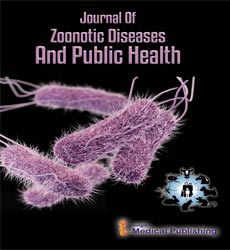Reach Us
 +447897072958
+447897072958
Rupture from cavernous internal carotid artery pseudo aneurysm 11 years after transsphenoidal surgery
Visit for more related articles at Journal of Zoonotic Diseases and Public Health
Abstract
Carotid artery pseudoaneurysm is a rare complication of transsphenoidal surgery, usually diagnosed within 90 days post procedure. Pseudoaneurysm rupture may present with severe epistaxis or carotid cavernous fistula (CCF) with significant morbidity and mortality. We present a case of epistaxis from pseudoaneurysm rupture over a decade after transsphenoidal surgery. The pseudoaneurysm was treated with staged balloon-assisted coiling, endonasal mucosal flap repair and interval flow-diverting stent insertion. This case illustrates that pseudoaneurysms develop and rupture regardless of postoperative time course after transsphenoidal surgery, and the treatment complexities involving combined endovascular and endonasal techniques.
Select your language of interest to view the total content in your interested language
Open Access Journals
- Aquaculture & Veterinary Science
- Chemistry & Chemical Sciences
- Clinical Sciences
- Engineering
- General Science
- Genetics & Molecular Biology
- Health Care & Nursing
- Immunology & Microbiology
- Materials Science
- Mathematics & Physics
- Medical Sciences
- Neurology & Psychiatry
- Oncology & Cancer Science
- Pharmaceutical Sciences
